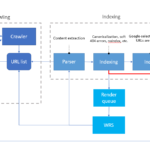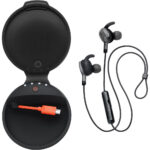Should You Eat Before a Workout or Train on an Empty Stomach? Here’s What You Need to Know
By Sudipta Dash, Fittr Coach
Whether to eat before a workout or exercise in a fasted state is a personal choice—and the best decision depends on your fitness goals, daily routine, and how your body responds.
Let’s break it down with a science-backed, practical approach to help you make the best choice for you.
Why You Might Want to Eat Before a Workout
Eating before you exercise can be a game-changer, especially if your workout is long, intense, or performance-based.
✅ Boosts Energy
A small pre-workout meal or snack provides **fuel—mainly from carbohydrates—**to power through your session.
Scientifically, carbs help top off muscle glycogen levels, your primary energy source during moderate to high-intensity workouts.
✅ Enhances Performance
With more energy available, you can push harder, stay focused, and improve training output.
Research from the International Journal of Sport Nutrition shows that consuming carbs 30–60 minutes before exercise improves endurance and power.
✅ Supports Muscle Protection
A small amount of protein before your workout helps reduce muscle breakdown—critical if you’re lifting weights.
Studies indicate that essential amino acids from pre-workout protein support muscle protein synthesis and minimize catabolism during training.
✅ Stabilizes Blood Sugar
Eating before training can help prevent dizziness, fatigue, or weakness, especially if you’re working out in the morning or after long fasting periods.
Keeping blood glucose stable improves performance and avoids symptoms of hypoglycemia during prolonged sessions.
Why Some People Prefer Fasted Workouts
Training on an empty stomach—often done early morning before breakfast—can work well for some people based on their goals and comfort.
✅ May Promote Fat Utilization
When glycogen stores are low, the body may shift to oxidizing fat for energy, especially during low to moderate-intensity workouts.
Fasted cardio has been linked to higher fat oxidation during sessions, though this doesn’t necessarily lead to more total fat loss over time.
✅ Convenient and Time-Saving
No need to wait for digestion—just get up and go. This is great for early risers or busy schedules.
✅ Metabolic Flexibility Training
Occasional fasted training may improve the body’s ability to use both carbs and fats as energy, beneficial for endurance athletes.
But be cautious: regular fasted high-intensity training can negatively impact recovery or strength gains if not planned properly.
✅ Personal Comfort
Some people just don’t feel great eating before training. Bloating, sluggishness, or nausea post-meal may make fasted training the better choice for them.
Pre-Workout vs. Fasted: Which Is Better?
Let’s compare the two based on different goals:
| Fitness Goal | Best Approach | Why |
|---|---|---|
| Fat Loss | Either (Total calorie deficit matters more) | Fasted may enhance fat use, but fed helps performance. |
| Muscle Gain | Eat before workout | Carbs + protein boost performance & protect muscle. |
| Endurance | Periodic fasted sessions | Improve fat adaptation; but fuel long runs. |
| General Fitness | Depends on preference | Choose what keeps you consistent & energized. |
Listen to Your Body
There’s no perfect answer—your body is your best guide. Ask yourself:
- Do I feel lightheaded during fasted training?
- Do I feel bloated or sluggish when I eat before workouts?
- Do I recover well after sessions?
What matters most is not following trends—but finding what helps you train better, recover faster, and stay consistent.
Pre-Workout Snack Ideas (30–90 mins before workout)
- Banana + Peanut Butter
- Greek Yogurt with Berries
- Oats with Milk or Whey
- Whole-Grain Toast with Egg
- Smoothie with Banana + Protein Powder
Post-Workout Meal Ideas (within 1–2 hours)
- Grilled Chicken + Rice + Steamed Veggies
- Paneer Wrap with Salad
- Egg Whites + Whole Wheat Toast
- Whey Protein Shake + Fruit
- Quinoa + Lentils + Curd
Final Takeaway
Whether you eat before working out or train fasted, what matters is how your body feels, performs, and recovers.
Both approaches can support your fitness journey—just make sure:
- You’re meeting your daily nutritional needs
- You’re recovering well
- You’re staying consistent
So, experiment. Observe. Adapt.
Because fitness isn’t just about what’s trending—it’s about what works for you.
#FuelYourWorkout #FastedTraining #EatForResults #FitnessFuel #StrongNotStarving #FitWithSudipta #FittrCoach
Need help creating your personalized pre/post workout meal plan? Drop a message to connect with me!
— Sudipta Dash, Fittr Coach









